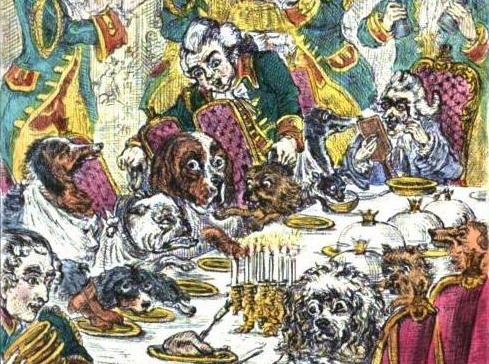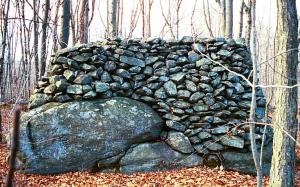darg
n. a day’s work
Light Show
On May 15, 1879, J. Eliot Pringle, commander of the H.M.S. Vulture, saw something odd in the Persian Gulf:
I noticed luminous waves or pulsations in the water, moving at great speed and passing under the ship from the south-south-west. On looking towards the east, the appearance was that of a revolving wheel with centre on that bearing, and whose spokes were illuminated, and looking towards the west a similar wheel appeared to be revolving, but in the opposite direction.
Eight months later and 1,500 miles to the southeast, off the Malabar coast, Cmdr. R.E. Harris of the steamship Shahjehan witnessed glowing waves of “a peculiar but beautiful milky whiteness”:
In a short time the ship was completely surrounded with one great body of undulating light, which soon extended to the horizon on all sides. … If the sea could be converted into a huge mirror, and thousands of powerful electric lights were made to throw their rays across it, it would convey no adequate idea of this strange yet grand phenomenon.
Harris called his vision “the most remarkable phenomenon that I have ever seen at sea”; Pringle called his “beautiful and striking.” What they were, precisely, is not clear.
(From Nature, July 24, 1879, and Charles Frederick Holder, Living Lights: A Popular Account of Phosphorescent Animals and Vegetables, 1887. See also A Phosphorescent Sea.)
Feeder of the Pack

Lord [Francis Henry] Egerton [1756-1829] is a man of few acquaintance, and very few of his countrymen have got as far as his dining-hall. His table, however, is constantly set out with a dozen covers, and served by suitable attendants. Who, then, are his privileged guests? No less than a dozen of favourite dogs, who daily partake of milord’s dinner, seated very gravely in arm-chairs, each with a napkin round his neck, and a servant behind to attend to his wants.
— John Timbs, English Eccentrics and Eccentricities, 1875
The Shark Arm Affair

On April 25, 1935, a shark in Australia’s Coogee Aquarium disgorged a human arm. The shark had recently been caught off Sydney, but no swimmers had been reported missing. The arm, which had been severed with a knife, was eventually identified as that of 40-year-old ex-boxer James Smith, who had been missing since April 7.
Police began a murder investigation, but without a body there was no proof that Smith was dead. The case collapsed, and it remains unsolved.
The Oley Hills Site

Someone has piled the stones and boulders of Berks County, Pa., into walls, piles, and cairns.
No one knows who, when, or why.
Fair Exchange
An admirer once wrote to Rudyard Kipling: “I see you get a dollar a word for your writing. I enclose a check for one dollar. Please send me a sample.”
Kipling responded: “Thanks.”
Thinking Ahead
In 1936, angered by early bonuses being paid to World War I veterans, a group of Princeton students formed the Veterans of Future Wars. They said it was inevitable that the country would go to war within 30 years, and that young men would serve, so they demanded payment of $1,000 each in advance.
By June the group had 50,000 members in 584 chapters nationwide, all of whom adopted the group’s salute, “hand outstretched, palm up and expectant.” But it all blew over by April.
Ironically, nearly all the founding Princetonians did serve in World War II.
Isn’t It Romantic?

Dante Gabriel Rossetti revered his wife, and when she died in 1862 he laid his journal in her coffin.
Seven years later he decided he needed the poems, so he had her exhumed.
Unquote
“Not what I have but what I do is my kingdom.” — Thomas Carlyle
Room Service
On Dec. 9, 1873, something strange happened to Thomas B. Cumpston and his wife in Bristol’s Victoria Hotel. From the London Times of Dec. 11:
They were alarmed at about four o’clock in the morning by terrible noises which they could not explain, and which frightened them very much. The bed seemed to open, and did all sorts of strange things. The floor, too, opened, and they heard voices. They were so terrified that they opened their bed-room window and leapt out. Mrs. Cumpston, also, gave her version of the affair. She said they heard terrible noises at about four o’clock in the morning. The floor seemed to be giving way. It certainly opened, and her husband fell down some distance, and she tried to get him up. What they said was repeated every time they spoke. Being very much frightened she asked her husband to fire off his pistol, which he did, into the ceiling.
The two leapt into the yard and ran to a nearby railway station, where police charged them with disorderly conduct and letting off firearms and released them into the custody of a friend. “No explanation can be given of this strange affair, and the belief is that it was an hallucination on the part of the husband.”
